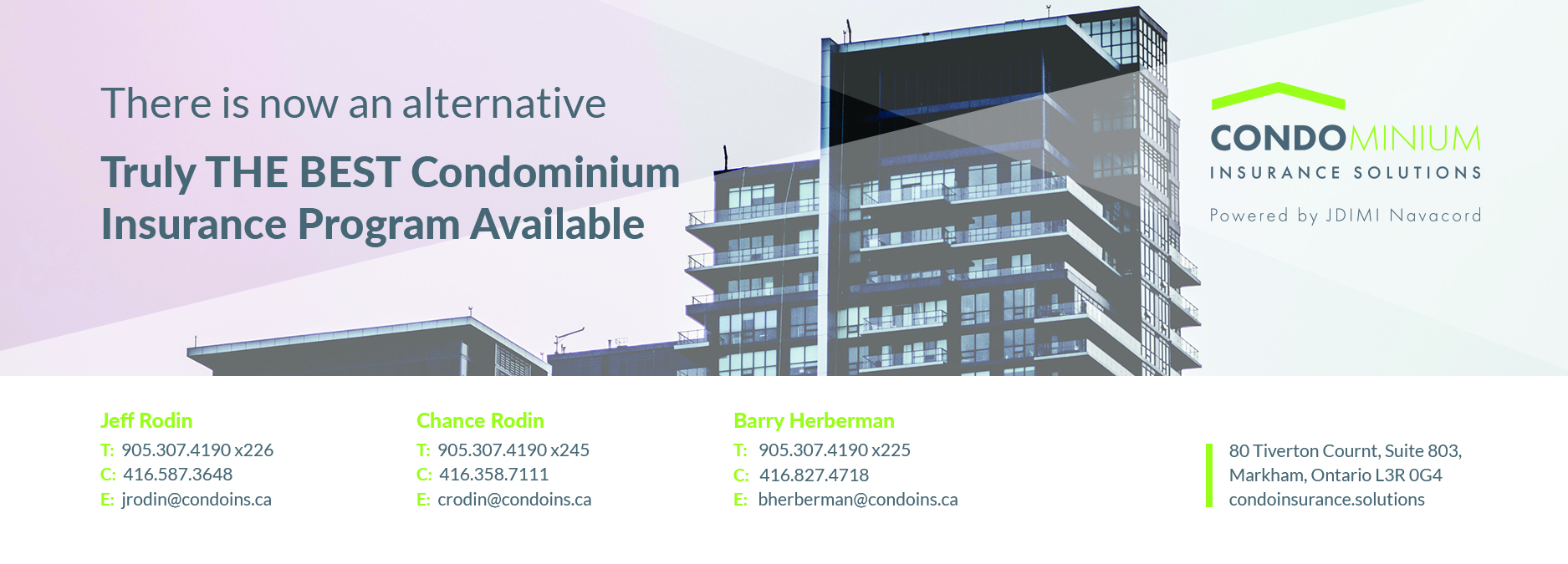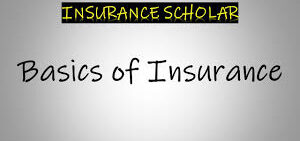 April 2025
April 2025
Insurance is one of the most confusing aspects of condominium living. Recovering damages relating to maintenance, repairs and accidents is complex.
Every condominium corporation maintains insurance – a master policy – which protects the corporation against liability for injuries and damages that occur on the premises.
Condo owners and renters require personal coverage to address what is not included in the master policy. Condo owners can be held liable for damage to other suites or common areas. Landlords require protection against tenants that fail to maintain adequate insurance coverage. Without this protection the owner of a unit with a kitchen fire or overflowing bathtub causing damage beyond the suite could be responsible for paying a deductible in the tens of thousands of dollars, and possibly additional costs to repair damage.
Condominium Corporation Liability and Limits
After water damage, fire or other events, major repairs become necessary. As a general rule, the condominium corporation is required to insure both units and common elements for major damage. They are also generally responsible for repairs up to the level of what is defined as “the standard unit” which excludes improvements.
Every condominium corporation insurance policy has a deductible which may be in the thousands or tens of thousands of dollars, or possibly higher. According to the Condo Act, the corporation is responsible for dealing with damages exceeding the deductible regardless of how they are caused. Less clear is who is responsible for repair costs up to the amount of the insurance deductible.
Act or Omission
An “act or omission” refers to an act or omission by the owner that caused or resulted in damage to common areas or other units. When an “act or omission” occurs, the corporation can charge back the costs of repairing an owner’s unit. This amount is limited to the lesser of repair cost or the insurance deductible.
Communities concerned for the safety and security of their residents and building infrastructure will undertake an annual building audit of residential units. Within each unit they look to ensure there are no safety, security or maintenance concerns. They look for water or moisture damage, leaking toilets, faucets or pipes; window damage or caulking requiring repair or replacement; damaged security, carbon monoxide, smoke detection or sprinkler systems; signs of pest infestation; and anything else that can impact on other units or common areas. Identified concerns are documented for management and each resident. Should problems in one unit arise that impact other units or common areas which were previously documented, this would be a resident failure to address a known concern and constitute an “act or omission”.
Insurance Deductible and By-law
The corporation does not have automatic authority to charge back to an owner the costs of repairing damage to common areas or other units. It may have enacted an Insurance Deductible By-law that identifies when costs of repairing units and common areas can be charged to the unit that caused the damage. This would be applicable only when there is an “act or omission”.
Standard Unit By-law
When the corporation has a Standard Unit By-law, it determines responsibility for repairing or maintaining improvements made to units and for insuring them. It helps ensure in-suite improvements made by a condo owner are their responsibility to insure.
The Standard Unit By-law limits the corporation’s obligation to repair damage up to the level of the standard unit. It simplifies identifying what repairs are improvements and where the corporation’s obligation to pay for repairs ends.
The existence of a Standard Unit By-law limits the corporation’s obligations to repair when there is no “act or omission”, or if there is no Insurance Deductible By-law, in which case the unit that is the source of damage is responsible for the cost of repairs.
Condominium Residents
All condo residents are expected to have insurance covering their personal possessions. Depending on the policy, there may be coverage for the condominium corporation’s insurance deductible. The policy may include a personal deductible and other limits.
How the condominium corporation chooses to handle an insurance-related matter can impact on personal policies. For an identical damage situation, one corporation may file with their insurance provider. Another may choose to pay for repairs rather than risk higher future premiums or deductibles. In short, the corporation’s actions may dictate how your insurance provider responds.
The condominium corporation’s insurance provider will work with insurance providers for affected residents to identify coverage and limits of each individual policy. When an insurance policy does not cover repair and replacement costs on a unit, the individual holding the policy is responsible for these costs.








